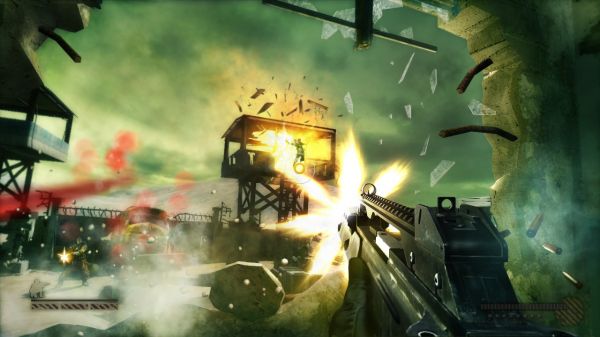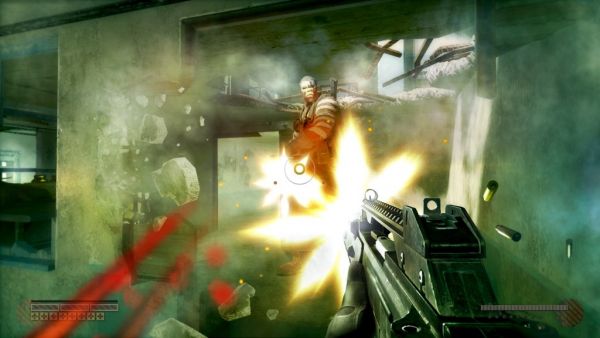It was not that long ago that Codemasters announced that they are working on a new FPS IP, dubbed Bodycount, that is set to be the "spiritual successor" to the FPS shootout glory that was Black. Fortunately, this successor will include a co-op mode, though that is just one of several improvements that Stuart Black, the creative director behind both games, plans on implementing. Joystiq recently spoke with Stuart about what players can expect from Bodycount, including how the game's going to be structured like seasons from a TV show, and why co-op fans won't be able to play the full story campaign with their friends.
Joystiq: What about multiplayer in Bodycount "Season One?"
Stuart: There's drop-in co-op and deathmatch. For co-op, we were originally going to let you play the campaign with a buddy. But it became sadly obvious that, from a narrative point of view, it was very important for the player to be absolutely alone during key moments in the campaign. The player had to rely on nobody at all, and to have another player in the experience undercuts that. So sadly, we couldn't do the co-op as part of the campaign.
Instead, we have so much back story. Because the campaign is told entirely from the player's point of view, there's a lot of stuff that we never get to see. So in our co-op mode, we'll look at events before and after the player was in that part of the world. You'll play as a more generic asset and see the world before Jack, and the consequences of Jack's actions after he left.
The response is one we've heard before about why full campaign co-op gets left out of a game, but at least Stuart's providing a co-op campaign experience that works with and around the main campaign mode so players can get some back story. While this offers up some degree of appeasement, reading the full interview leads me to wonder how valid the answer is in this case.

Joystiq: What lessons did you learn from Black?
Stuart: Make sure you actually have a story. (Laughs.) Have a better sense of progression. It was the first shooter for all of us making that, so it was a big, big learning experience for all of us. I think we were right to be very focused on that core shooting, but we could have done more with that sense of progression, more sense of a journey, and pacing to the combat. So we're very conscious of doing that here. We started with that foundation of "here's all the things we learned from Black," so we can focus on that progression, that sense of story, and create a more holistic package than before.
Joystiq: FPS games aren't really known for their stories ...
Stuart: And I think that's right. First, games in general, it's about the doing. It's the interaction that makes it special. And interaction and story aren't very good things to match up. There needs to be enough story to justify what I'm doing, gives me a reason for what I'm doing. I think a lot of stories get caught up in plots and being convoluted. It's about characters. It's about identifying somebody and going on a journey with them. It's about the arc of Jack and Melanie and what happens to them as characters throughout the course of the game.
Ok, I understand what Stuart's getting by saying that an FPS doesn't need to have a great story (despite the fact that I can point to several counter examples) and that all it really needs is just enough reason/justification for your character to go from point A to point B (where all the evil baddies are). It's a lesson they learned from making Black so it makes sense they want to do a better job this time around. Certainly not every FPS needs to be a gaming equivalent to "Moby Dick," but if all that's really needed for an FPS is some kind of justification, then how does that exclude co-op? What's more, Stuart goes on to say that:
a lot of stories get caught up in plots... It's about characters. It's about identifying somebody and going on a journey with them. It's about the arc of Jack and Melanie and what happens to them as characters throughout the course of the game.
So in the case of Bodycount, there are two characters going on some kind of journey together and we, as players, are expected to identify with and relate to them throughout the course of the game... How is it that telling this kind of narrative would eliminate a complete campaign co-op mode? Granted, some adjustment would have to be made, but The Scourge Project was able to integrate different character arcs into an overall story, so why couldn't Bodycount?
Source: Joystiq.com
